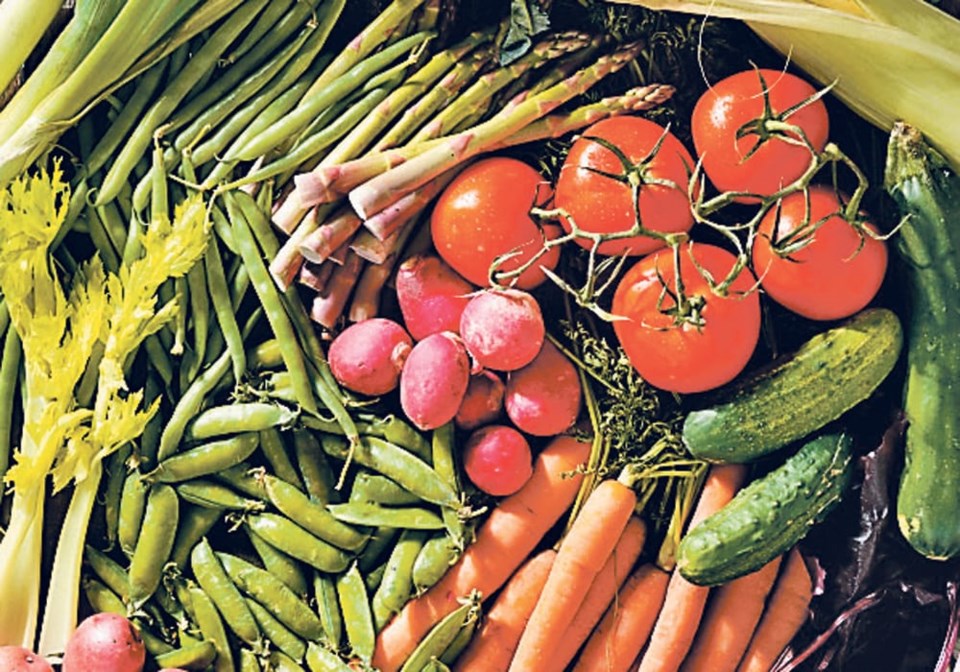Last week, I wrote about the “Seeds of a good Anthropocene” project and what we might learn from it. This week, I begin to highlight some of our local “seeds” — groups and organizations that are working to create a One Planet Region. This is our local version of a good Anthropocene where we use only our fair share of the Earth's resources while improving health and well-being in a way that is socially just.
There are a great many groups in the community, non-governmental organizations, private and public sectors doing good work. I can only provide an overview and will doubtless miss many, for which I apologize. I will begin with the categories of the ecological footprint for Saanich and Victoria, as estimated by Jennie Moore and Cora Hallsworth. In order of importance, they are food, transport, buildings, and consumables and waste. But over the next couple of weeks, I will also look at other key issues and at groups that are taking a comprehensive approach.
Almost half the footprint is food, and much of that is due to our diet, which is high in meat, dairy, fish and eggs. Now I am not suggesting that we all go vegan or even vegetarian — I am neither — but we do need to move to a low-meat diet. Interestingly, that is pretty much the advice from Health Canada, whose new food guide — designed to be healthy — is strongly plant-based.
A good local resource is the Good Food Network, which is co-ordinated by the Capital Region Food and Agricultural Initiatives Roundtable. Good Food means “good for the planet, good for the provider, and good for the health and wellbeing of all.” The network connects diverse groups from across the food system — from farm to retail — that are working together toward a healthy and sustainable food system in our region. There are many people and organisations in the network working to produce and sell a more plant-based, ecologically produced diet, and they deserve our thanks and support.
Another way in which the food system contributes to our ecological footprint is the incredible amount of waste in the system — one recent Canadian estimate is that on the path between field and the waste system, as much as 60 per cent of our food goes to waste. The CRD estimates about 18,000 tonnes of food waste from the region goes to compost each year and that “avoidable food waste … makes up about 10% of our overall waste stream.”
So the CRD has joined the national Love Food, Hate Waste campaign and is working to reduce food waste in the region. We can all help the CRD by buying less food, which not only might save us a pile of money — astonishingly, the CRD estimates the value of food waste is “up to $1,100 worth of groceries per household” — but in this age of obesity might help us eat less, which would be good for our health.
The second largest contributor to the ecological footprint is transportation, with almost three-quarters of that due to private transportation. So the priority must be to avoid the need for travel in the first place, and an important part of that is to create somewhat more dense mixed-use communities where people can more easily carry out their daily activities locally by walking, biking and using good public transit.
An important local champion of this approach is Todd Litman. Not only is he the founder of the Victoria Transport Policy Institute, whose research is used to support more sustainable transport planning in many parts of the world, but more recently he has established Cities for Everyone. This non-governmental organization points out “an inexpensive house is not really affordable if located in a sprawled, automobile-dependent area with high transportation costs.” Among other things, their extensive Affordability Agenda champions affordable infill housing development and proposes that all neighbourhoods in the Region grow at 1.5 per cent annually, the overall rate of population growth.
Next week, I will describe more local seeds in transport, energy, buildings, consumables and waste, as well as organizations that are working on other One Planet issues such as water supply and quality, parks and nature access, and ecosystem protection and restoration.
Dr. Trevor Hancock is a retired professor and senior scholar at the University of Victoria’s School of Public Health and Social Policy.



